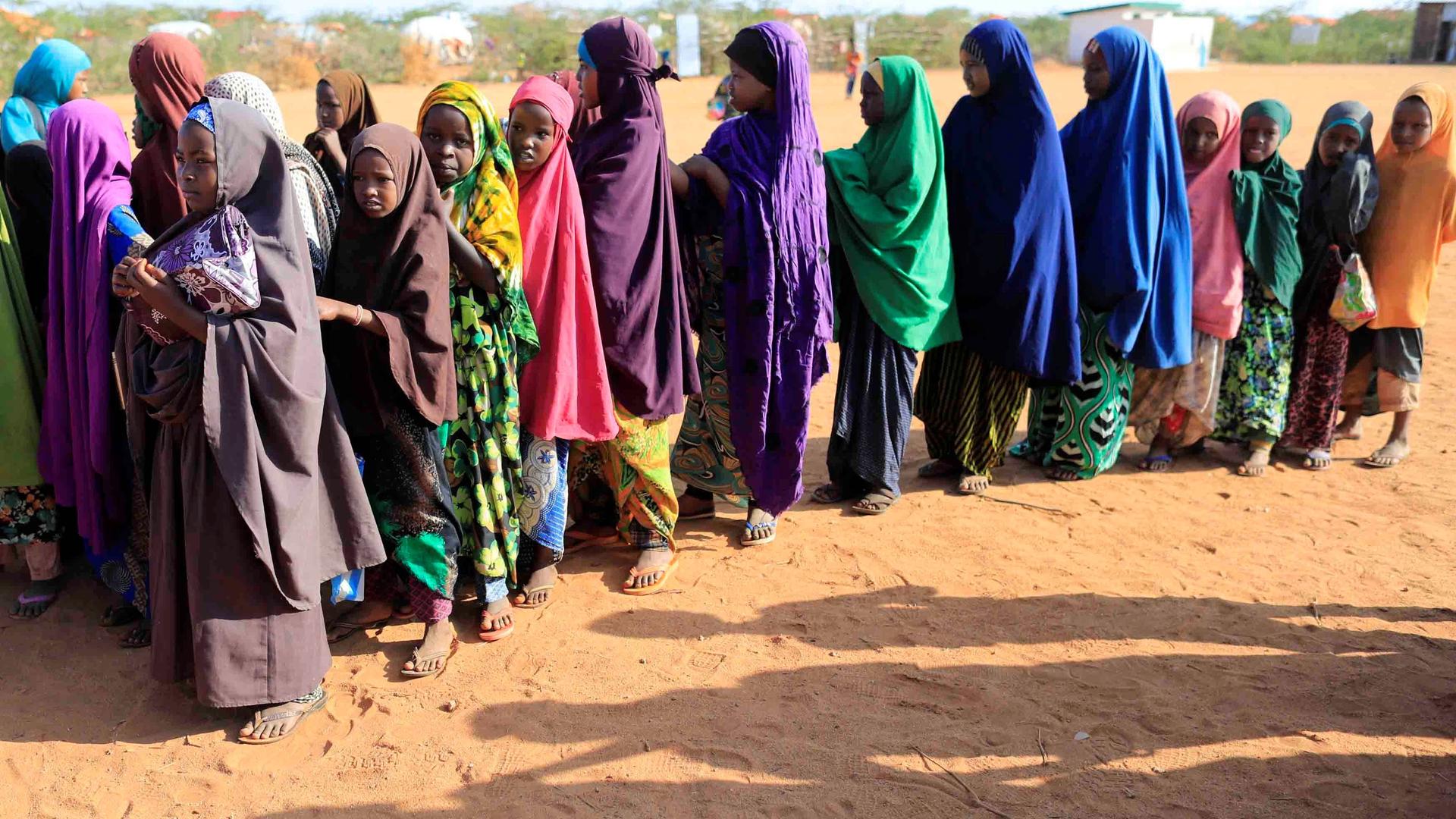During the worldwide COVID-19 lockdown, activists in some countries made historic gains in the fight to stop the practice of female genital mutilation, or FGM, which involves removing a girl’s clitoris.
FGM is condemned by the World Health Organization as a violation of the human rights of girls and women. An estimated 200 million girls and women worldwide have undergone FGM, which is practiced in at least 27 African countries and parts of Asia and the Middle East.
Sudan — a country with one of the world’s highest rates of FGM — criminalized the act. In Russia, a gynecologist who performed an FGM operation is being tried in court in one of the first cases of its kind there.
But other countries, such as Somalia, saw increases in the practice during pandemic-induced lockdowns.
Related: Somali Americans share in the grief and pain over George Floyd’s killing
Somalia has the world’s highest FGM rate, with about 98% of women having been cut.
“FGM is one of the most extreme manifestations of violence against girls.”
“FGM is one of the most extreme manifestations of violence against girls,” said Sadia Abdi Allin, Plan International’s head of mission in Somalia.
Allin said it’s become so popular in Somalia that people offering to perform the practice are now going door to door.
Related: No. 1 rule for police: Defend human rights, says Ukraine’s former police chief
“They knocked on my own [door] asking if I have girls to cut,” she said. “And it was such a shock for me because I haven’t seen that for years.”
Still, some parents see FGM as a requirement under some faiths, and they saw the COVID-19 lockdown as a good time to have it done. Allin said women’s organizations have reported dramatic increases in the number of FGM operations. The procedure is forced on thousands of girls every year for no medical purpose. It can destroy a woman’s ability to experience sexual pleasure and lead to health problems. Allin said girls who undergo FGM often turn silent and timid.
“When they are silenced from a very young age, then the expectation for a woman to become a leader, to be educated, to be economically powerful, is absolutely zero,” she said.
“When they are silenced from a very young age, then the expectation for a woman to become a leader, to be educated, to be economically powerful, is absolutely zero,” she said.
Allin said all she can do is plead with parents not to perform the operation because right now, there’s no law to protect girls. For her, Sudan’s reported passage of a law criminalizing FGM was inspiring.
“It has [given] me that great hope that we may be next,” Allin said.
Related: Systems of oppression in health care long made ‘invisible,’ Harvard prof says
But the ban in Sudan took years of activism to bring about.
“Nobody really expected that FGM, after all these years, it would come, you know, and it would come so strongly,” said Tamador Ahmed Khalid, who is with UNICEF in Sudan, and has been fighting FGM there for 40 years.
Khalid said the country’s new law would sentence those found guilty of performing FGM to three years in prison. But she said now, activists have to make sure the ban is enforced.
Related: Coronavirus exposes Sudan’s broken health care system
“So, there is a lot of work to be done. The first step is to develop a manual for law enforcement,” Khalid said. “Because so many people, judges and the prosecutors, they may not even be aware of this law.”
There’s already one big concern — who will actually be punished by the ban.
“Randomly, they come up with this announcement about criminalizing FGM. And it worries us as women’s rights activists, as feminists. Because who are they going to criminalize? They aren’t going to criminalize the men who are actually behind female genital mutilation.”
“Randomly, they come up with this announcement about criminalizing FGM,” said Hala al-Karib, of the Strategic Initiative for Women in the Horn of Africa. “And it worries us as women’s rights activists, as feminists. Because who are they going to criminalize? They aren’t going to criminalize the men who are actually behind female genital mutilation.”
Karib said FGM is a symptom of an even deeper problem — the unequal status of women.
“Women citizenship rights, it’s in a very miserable situation,” she said. “Like, right now during this COVID[-19] time, we have a very high prevalence of domestic violence. You know — brutal.”
If the government really wants to help women, Karib said it has to take action on a much larger scale.
Reuters contributed to this report.
